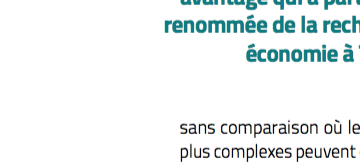Eve’s research area is the set of statistical methods for data which correspond to durations – such as lifetimes, or periods of unemployment or marriage – and are often censored. Censored data are among the complex data structures in which only partial information on the variables of interest is available. Censoring occurs when the event of interest – such as death, finding a job or divorce – does not happen during the follow-up time for some individuals.
Within this field, Eve works on competing risks. These scenarios occur when an individual is at risk of several types of events, as is the case for cancer patients in the post-therapeutic phase. She is also interested in variable selection in survival models in high dimension, which is particularly relevant to oncology. Since the sequencing of the genome, a colossal amount of genetic information is now available to clinicians. Statistical analysis can establish which combination of genes best predicts the survival of cancer patients, providing more accurate estimates of survival duration. This information can be extremely useful in adapting treatment to the needs of the patient.
The goal of MADS is to animate and develop research activities in mathematics applied to economics. Topics include operations research, the mathematics of finance, statistics, econometrics, game theory, optimization, calculus of variations and PDE, mathematical models in economics, finance, and social sciences.
One example of the MADS group’s application of statistical methodology to economic data is Eve’s joint project with Sandrine Casanova. This research aims to model the cumulative distribution function of a censored duration in the context of survey sampling, in a finite population or in domains which may be small. The estimators they propose are based on non-parametric quantile regression adapted to the censored case. This work has, among other things, made it possible to estimate the distribution of access times to their first job for female graduates in the Occitania region, depending on their education type and level.
In another project for the MADS team, Christine Thomas, Thibault Laurent and Anne Ruiz-Gazen are working with PhD student An Huong Nguyen on the modelling of data from French departmental elections, taking into account some socio-economic and geographical characteristics. This requires specific statistical methodology and the researchers aim to provide new regression estimators in this context.
Extract of the TSE Mag#17 Summer 2018




